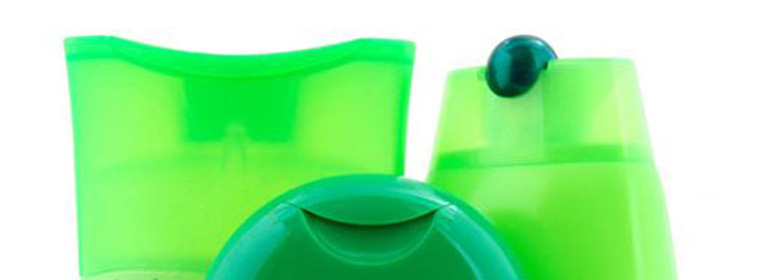Many products in the marketplace claim to be green, but a closer look often reveals misstatements or exaggerations about their environmental friendliness.
As the green movement continues to gain acceptance, more and more manufacturers and corporations are jumping on the environmental bandwagon. The result is thousands of new and redesigned products that are touted as eco-friendly or sustainable. After all, if it's green, it's got to be good, right? Unfortunately, the onslaught of green goods has led to many instances of greenwashing, the act of misleading consumers regarding a company's environmental practices or the environmental benefits of a product or service.
"The notion that companies sometimes exaggerate or misstate the environmental benefits of their product has been around for a very long time," says Scot Case, vice president of TerraChoice, an environmental marketing firm that manages the EcoLogo Program. "What we've noticed in the last few years, however, is that the number of products making truly ridiculous environmental claims seems to be rising."
Case believes that in many cases, greenwashing is a result of misinformation or misguidance, rather than a company intentionally pulling the wool over consumers' eyes. "I would prefer to think that we have manufacturers that are confused about what green is, working with marketing firms that are confused about what green is, and selling to consumers who are confused as to what green is," he says.
The TerraChoice team investigated the claims of more than 1,000 products to determine whether they met the requirements of the FTC, the EPA and the Consumers Union (publisher of Consumer Reports). All but one of the products had made a misleading or false environmental claim. The research resulted in the Six Sins of Greenwashing:
The sin of the hidden trade-off occurs when a company touts its environmental friendliness based on one attribute. Example: A flooring manufacturer claims that its product is made of recycled content, but it doesn't address such manufacturing impacts as the adhesives, varnishes or packaging used. "Don't be misled by a single environmental claim," Case suggests.
The sin of no proof happens when a company doesn't have the data or valid third-party certification to back up its statements. Example: Lighting manufacturers that claim their products are energy-efficient but have no supporting evidence to prove it.
The sin of vagueness is committed when a company's claim is so poorly defined or broad that it misleads or confuses the customer. Example: Products that use buzzwords such as "non-toxic," "all natural," and "chemical free" but don't explain what these descriptions mean should raise a red flag.
The sin of irrelevance occurs when a product makes an environmental claim that may be truthful but unimportant. Example: Cans of spray paint that boast they are free of CFCs, or chlorofluorocarbons, the chemical compound linked to holes in the ozone layer. The only problem? The federal government has outlawed CFCs in products since 1978. "In effect, it's a true but completely meaningless statement," Case says.
The sin of the lesser of two evils involves selling a consumer something they don't need and distracting them from the greater environmental impact by hiding behind something green. Example: Building a home four times larger than it needs to be, but loading it up with "green" features.
The sin of outright fibbing is a flat-out lie about an item's environmental impact. Fortunately, very few products fall under this category, according to Case. Example: A product that promotes its organic certification but doesn't even have it.
When seeking out a green product, people can also look for third-party certification, which many companies seek to back up their green claims. But Case warns that not all certification organizations are created equal. "At last count there were almost 400 different environment standard and certification programs, and some of them are absolutely ridiculous," Case says. He believes that certification programs worth their salt should meet three criteria: They make their standards publicly available and free of charge, they develop their standards openly and transparently, and they thoroughly examine the claims a company makes (for example, they will inspect the manufacturing facility to ensure a product meets standards). Case counts EcoLogo, the Forest Stewardship Council (FSC) , Green-e and Greenguard among organizations that follow these steps.
By recognizing instances of greenwashing, consumers can better identify products and services that fit into their scope of green living. Holding companies accountable for the environmental claims will grow increasingly important because, as Case notes, "our understanding of green is constantly evolving."







